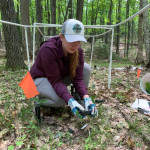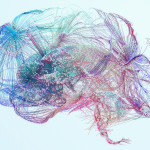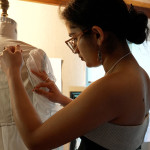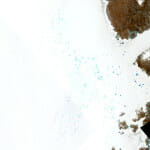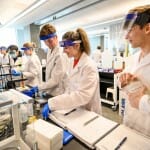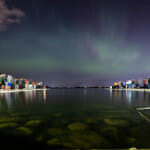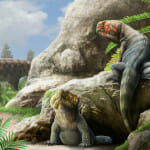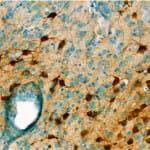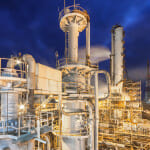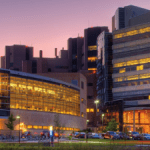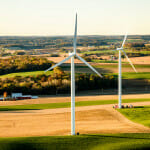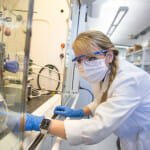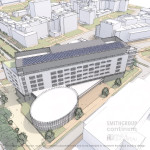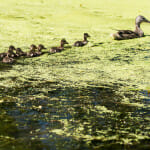Category Science & Technology
Clearer picture of watershed quality helps people put dollar values on improvements
Researchers found that when shown a range of tangible improvements to local and distant waterways, people surveyed were willing to pay more in taxes to support some, but not all, watershed restoration efforts. Read More
Climate-stressed trees get a boost from new microbial partnerships
On top of a better understanding of the way trees and microbes work together in a race against climate change, plant-fungi matchmaking may be a boon to plans to reforest the planet. Read More
UW Center for Healthy Minds will research machine learning predictions of well-being
The project aims to discover and develop technologies that in the future may inform the delivery of algorithm-based micro-supports — short well-being practices like mindful breathing that may help in the moment. Read More
Flowing between art and science
Now in its third year, the Flow Project highlights not only the value of art as a tool to communicate science, but also as a way to inspire new science across University of Wisconsin campuses. Read More
2 UW professors elected to National Academy of Sciences
Jo Handelsman and Shannon Stahl are among 120 scientists elected this year. Membership is a widely accepted mark of excellence in science and is considered one of the highest honors that a scientist can receive. Read More
Atmospheric rivers linked to melting Greenland ice sheet
New research from UW–Madison's Space Science and Engineering Center shows the melting effects of atmospheric rivers on the ice sheet, which contains enough water to raise sea levels by 7 meters, or 23 feet. Read More
Students who see science in the real world are more likely to stick with STEM majors
Students in STEM majors whose coursework included reflection on the relevance of basic science concepts in everyday life were more likely to stick with their science, technology, engineering and math majors. Read More
Northern lights put on show above Lake Mendota
Members of the University of Wisconsin–Madison community who stayed up late Sunday evening were treated to a dazzling light show as the aurora borealis — or northern lights — danced across the night sky in hues of green and pink. Read More
Monica Turner elected to American Academy of Arts and Sciences
Her work and long-term research on the 1988 Yellowstone fire has helped us better understand how climate change is altering the internationally loved landscape and helped land managers plan for the future. Read More
Informed by mechanics and computation, flexible bioelectronics can better conform to a curvy body
In the future, for example, a flexible bioelectronic artificial retina implanted in a person’s eyeball could help restore vision, or a smart contact lens could continuously sense glucose levels in the body. Read More
Newly described ancient reptile named in language of First Nations where fossils were found
A newly identified rynchosaur, ancient relative to modern crocodiles and birds, is the first species to be scientifically named in the Arapaho language. Read More
New atomic-scale understanding of catalysis could unlock massive energy savings
Catalyst materials are critical for refining petroleum products and for manufacturing pharmaceuticals, plastics, food additives, fertilizers, green fuels, industrial chemicals and much more. Read More
Astronomers map Milky Way by light of exploding star
The burst of radiation has given astronomers an unprecedented look at the structure of the Milky Way and a new understanding of the sources of subatomic particles zipping through our planet. Read More
Corporate investment could improve climate-tech innovation
When well-resourced corporations invest in start-ups, they can have an outsized influence on which start-ups succeed and grow, therefore shaping climate technology trajectories. Read More
DOE renews funding for Great Lakes Bioenergy Research Center; UW–Madison hub to receive $27.5 million for 2023
The extension will allow GLBRC scientists to continue foundational research to enable the breakthroughs needed for the cost-effective conversion of non-food plants into low-carbon replacements for jet fuel, diesel and other fossil fuels. Read More
UW–Madison engineering talent critical to state, national economic progress
A planned new building is a critical starting point in the college’s ability to provide a hands-on education to many more engineering students and help keep pace with industry growth. Read More
Earlier algae blooms, lingering toxins: Invasive species cause big changes to a lake’s microbial community
Two invasive species are having an outsized impact on toxic algae blooms according to a recent study from UW–Madison, which shows that algal toxins stay in water longer thanks to the combined effects of invasive species on Lake Mendota's microbial community. Read More


